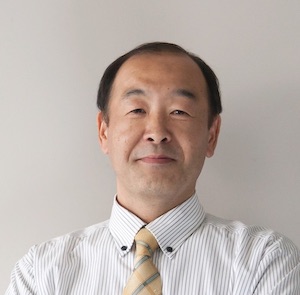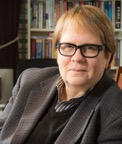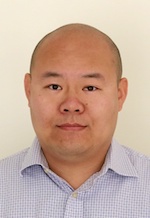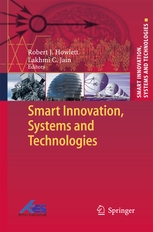Keynote Speakers
We are very pleased to have acquired the services of an excellent selection of keynote speakers for the symposium The speakers and the titles of their talks are shown below.
Prof. Koichi Asakura
Daido University, JapanData Acquisition, Analysis, and Sharing for Evacuation in Natural Disasters
More details ...
Prof. Sheryl Brahnam
Missouri State University, USABuilding general-purpose (GP) ensemble systems with heterogeneous ensembles and deep learners
More details ...
Prof. Irek Czarnowski
Gdynia Maritime University, PolandData reduction for machine learning and Big data
More details ...
Prof. Xiaobo Qu
Chalmers University of Technology, SwedenFuture transport systems for smart urban mobility
More details ...
Prof. Eiji Uchino
Yamaguchi University, JapanSoft computing-based intelligent diagnosis of arteriosclerosis - coronary arteries and retinal vessels -
More details ...
Prof. Koichi Asakura
Daido University, JapanData Acquisition, Analysis, and Sharing for Evacuation in Natural Disasters
Abstract:
Japan is known as an earthquake-prone country. Many local governments in Japan provide evacuation information in consideration of potential earthquakes, such as location information on shelters, seismic intensity, and so on. In order to achieve fast and effective evacuation, up-to-the-minute information on disaster areas must be provided to evacuees. In this talk, we present methods for supporting data acquisition, data analysis, and information sharing in disaster areas based on software and network technologies. We focus on evacuation for earthquakes in Japan. For data acquisition, we present a method for collecting positional information on immovable evacuees by technologies on mobile sensor networks and mobile ad-hoc networks. For data analysis, we present a method for constructing navigational maps for evacuees in which safe roads for evacuations are provided in real-time. Finally, for information sharing, we propose a communication method for sharing navigational maps. In disaster areas, infrastructure networks for mobile phones and the like might be unusable due to malfunction or heavy load. Thus, a hybrid communication method using both infrastructure and mobile ad-hoc networks is proposed.

Biography:
Koichi Asakura received his Dr.Eng. degree in Information Engineering from Nagoya University in 2002. He is a Professor in the Department of Information Systems, School of Informatics, at Daido University, Japan. His research interests include distributed/parallel processing, mobile ad-hoc networks, disaster information sharing systems, and programming learning support systems. He is a member of ACM, KES International, the Information Processing Society of Japan, and the Institute of Electronics, Information and Communication Engineers of Japan. He is also an associate editor of the International Journal of Knowledge and Web Intelligence.
Prof. Sheryl Brahnam
Missouri State University, USABuilding general-purpose (GP) ensemble systems with heterogeneous ensembles and deep learners
Abstract:
Until rather recently, the trend in machine learning (ML) has been primarily focused on building optimal classification systems for very specific and well-defined problems. Research centered on building generic ML systems robust enough to tackle diverse types of data and a large variety of different problems has been curtailed, in part, by Wolpert's famous "no free lunch" (NFL) theorem, which claims, in effect, that it is impossible to develop a stand-alone classifier that works well across each possible problem. In this address, I will describe some cutting-edge research by an international group (from the University of Padua, Università di Bologna, and Missouri State University) that is pushing against the NFL theorem. Our vision of an ideal GenP system is one that would work well straight out of the box, require little to no parameter tuning, yet would still perform competitively against (if not better than) less flexible systems that have been optimized for very specific problems and datasets. In this talk, I will provide a review of some of our recent successes and limitations building GenP systems (mostly medical) for computer vision classification. and present some new results produced for this conference.

Biography:
Sheryl Brahnam is a Professor and Daisy Portenier Loukes Research Fellow in the school of COB Computer Information Systems Department at Missouri State University. She is the Director/Founder of Missouri State University's infant COPE (Classification of Pain Expressions) project. Her interests focus on medical decision support systems, machine learning, bioinformatics, and biometrics. She has served as guest editor of several books and special issues on virtual reality and rehabilitation, technologies for inclusive well-being, smart sensors, and computational systems for medicine. She has published extensively in such journals as Bioinformatics, Pattern Recognition, Artificial Intelligence in Medicine, Amino Acids, Journal of Theoretical Biology, Expert Systems with Applications, Decision Support Systems, NeuroComputing, PLos One, and Interacting with Computers, as well as in many conferences devoted to human-computer interaction, machine learning, and artificial intelligence. More about Sheryl Brahnam can be found here: http://www.brahnam.info.
Prof. Irek Czarnowski
Gdynia Maritime University, PolandData reduction for machine learning and Big data
Abstract:
Since traditional techniques used for analytical processing are not fit to effectively deal with the massive datasets, searching for a new and better techniques, methods and approaches suitable for big data mining is a hot area for the machine learning community. In my talk I will consider data reduction as a technique allowing to reduce the dimensionality curse and to deal with large data sets and to classify instances belonging to big datasets. Data reduction techniques aim at decreasing the quality of information required to learn a good quality classifiers. The data reduction process aims at identifying and eliminating irrelevant and redundant information. A lot of research work confirms that data reduction through instance or attribute or instance and attribute can play a pivotal role in building robust learning model. In the big data era the task it is not trivial and much more complicated than normal-sized data analytics. In my talk I will provide an overview of selected example data reduction algorithms and which have been developed during my researches.

Biography:
Ireneusz Czarnowski is a graduate of the Faculty of Electrical Engineering at Gdynia Maritime University in 1997. He gained the doctoral degree in the field of computer science in 2004 at Faculty of Computer Science and Management of Poznań University of Technology. In 2012, he earned a postdoctoral degree in the field of computer science in technical sciences at Wrocław University of Science and Technology. Since 1998 is associated with Gdynia Maritime University, currently is an professor of computer science in the Department of Information Systems at Faculty of Entrepreneurship and Quality Science. Now, he is a Vice Rector for Scientific Research and Development at Gdynia Maritime University.
His main research interests are related to the use of artificial intelligence methods in decision support systems and data mining. His research activity is concerned with machine learning, data reduction for machine learning and data mining. His scientific work also focuses on research in the field of optimization methods and applications of agent systems. Within the field of his interest, he has published, as the author and co-author, more than 100 scientific works, including 15 which appeared in ISI Master Journal List, chapters in scientific monographs, three monographs and several other publications. He has been also the leader of ten research projects and took part in research in five other projects. He is also an editorial board member of the Journals of Knowledge-Based and Intelligent Engineering Systems as well as co-editor several special issues of international journals.
He has been serving as chair or co-chair of programme committee of above 10 international conferences, and served as PC member on more than 40 conferences during the last 3 years. He was co-organizer of several International Conferences and has been co-editor conference proceedings published by Springer and IEEE.
He is also a member of IEEE and, since 2016, he is the Secretary of the Polish branch of IEEE System, Man and Cybernetics and a member of other scientific associations.
Prof. Xiaobo Qu
Chalmers University of Technology, SwedenFuture transport systems for smart urban mobility
Abstract:
Fully realising the fact that our urban mobility systems will be undergoing a revolutionary change, many nations have invested huge amount of money in this area for emerging technologies, notably connected and automated vehicles (CAVs). In this research, we will explore the adaptation between traffic flow dynamics and transport infrastructure by designing proper trajectory control mechanism. Two control paradigms are examined: decentralized control is more likely to lead to local optimum instead of system optimality, while the centralized control has questionable applicability to real world practices in real time. In this research, we propose a decentralized control framework that is able to reach near system optimality. In the control framework, we will first develop a real-time control framework that is able to deal with how a vehicle ought to take actions in an environment so as to maximize its long-term performance based on the obtained output in a centralized bi-level model. The algorithms of optimal control attempt to find a (control) strategy that is able to select the optimal actions (i.e. speeds/vehicle operational parameters). CAVs will firstly be trained in an offline environment to learn how they ought to behave based on the output from the centralized bi-level models. The training results will then be used in real-time decentralized control that is able to give a satisfactory output in real-time.

Biography:
Xiaobo Qu is a Professor and Chair of urban mobility systems in the Department of Architecture and Civil Engineering, Chalmers University of Technology in Sweden. Throughout his academic career, he has been endeavoring to practically improve transport safety, efficiency, equity, and sustainability through traffic flow modelling, network optimization, and most recently emerging technologies. In particular, his research has been applied to improvement of emergency services, operations of electric vehicles and connected automated vehicles, and management of vulnerable road users. He has authored or co-authored over 90 journal articles published at top tier journals in the area of transport engineering, and he is a recipient of many prestigious awards. His research has been supported by Australian Research Council Discovery Programme, Queensland Department of Transport and Main Roads, Sydney Trains, National Natural Science Foundation of China, Swedish Innovation Agency Vinnova, and European Union. In the past five years, as a principal investigator or co-principal investigator, he has secured research funding well above 5 million Euros from these funding agencies. Professor Qu is now an Associate Editor/Editorial Board Member for IEEE Trans on Cybernetics, IEEE ITS Magazine, Journal of Transportation Engineering ASCE, Transportation Research Part A, etc.
Prof. Eiji Uchino
Yamaguchi University, JapanSoft computing-based intelligent diagnosis of arteriosclerosis - coronary arteries and retinal vessels -
Abstract:
Arteriosclerosis is a main cause of cardiac infarction and/or cerebral infarction. Many people in the world are suffering from those diseases. In this keynote, I will provide an overview of our recent studies on soft computing-based intelligent diagnosis of arteriosclerosis. Most causes of acute coronary syndromes (ACS) are the rupture of coronary plaque. Intravascular ultrasound (IVUS) method is one of the techniques to acquire information about atherosclerotic plaque, which enables characterization of coronary plaque. In order to assess a potential risk of plaque rupture, identification of plaque structure is important. The eye fundus is the only region where we can directly observe the blood vessels in the human body. By observing the state of the blood vessel on the eye fundus, medical doctors can diagnose the degree of arteriosclerosis of retinal blood vessel. The brain and the eye are embryologically the same organ, and thus the risk of arteriosclerosis of cerebrovascular vessels, can be estimated, which is our main purpose. The progress of arteriosclerosis can be predicted by a newly proposed objective measure of arteriosclerosis of vessel. In this talk, the prototype screening system to diagnose automatically the degree of arteriosclerosis of retinal vessel is introduced.

Biography:
Eiji Uchino is a Professor of the Graduate School of Science and Technology for Innovation, Yamaguchi University, Japan. He is the Head of the Department of Physics and Informatics, Faculty of Science, and the Chair of the Division of Fundamental Sciences, Graduate School. He is also the Chairman of the Board of Directors at the Fuzzy Logic Systems Institute (FLSI) founded in 1990 under the authorization by Ministry of Education and Ministry of International Trade and Industry of Japan. He was a Visiting Professor with the Aachen Institute of Technology (RWTH), Germany, with the University of Bristol, UK, and with Otago University, NZ. His research interests include human brain-based information processing system, AI-based signal and image processing, and their applications, e.g., to Healthcare Systems. He gave about 30+ invited talks at the international conferences including Plenary Talk, Panel Talk, Keynote and Distinguished Lecture. He received the best paper awards, distinguished technical awards, and other awards from many international conferences, journals and organizations. He served as a committee chair/member of 200+ international conferences, and as Member of Editorial Board, Board of Reviewers of academic journals. He is the author of 300+ published papers, 20+ book chapters, and has 20+ patent applications, and is the leader of 40+ projects funded by the Japan Society for the Promotion of Science (JSPS), etc. Professor Uchino is an Honorary Member of the Ukrainian Academy of Sciences since 2002.



